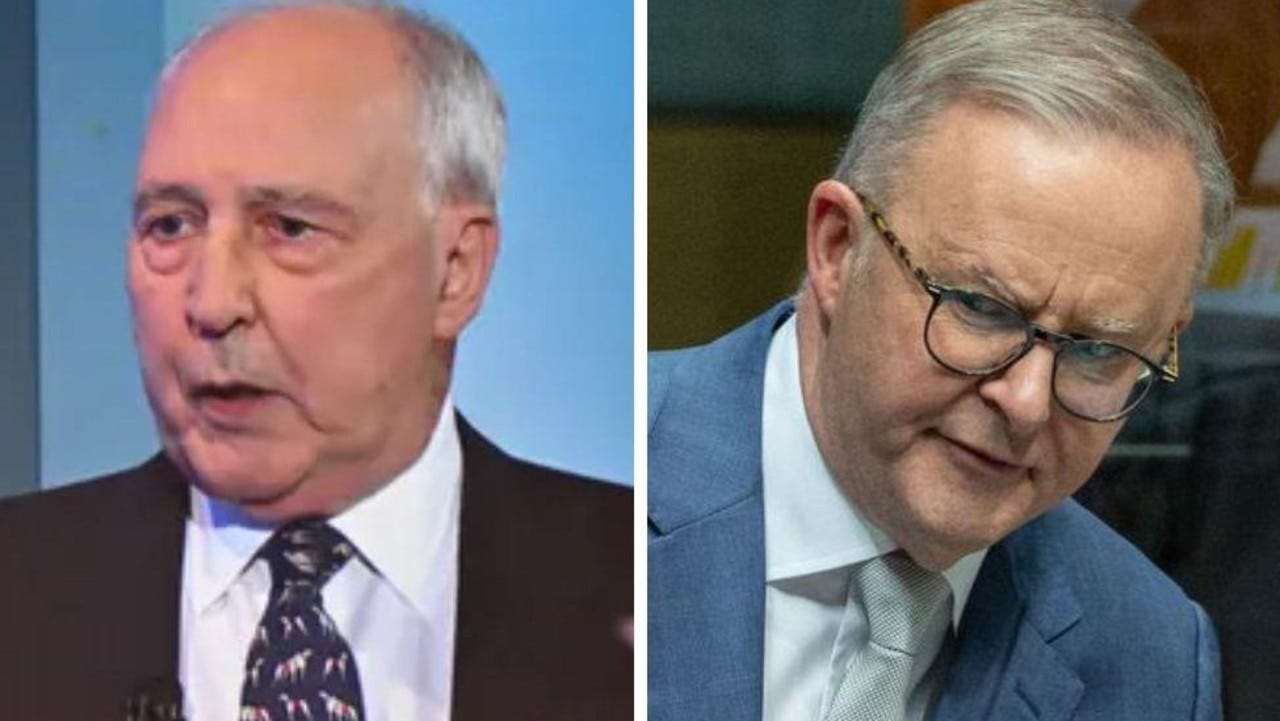Australian politics for decades has been riddled with poor leadership, a theme not uncommon globally either.
Australia’s changing face of politics has meant a disturbing loss in its egalitarian values and an increasing subservience to foreign control and influence.
When Paul Keating and Labor lost the 1996 federal election, it began a rot in Australian politics Australia has yet to recover from.
Paul Keating remains the benchmark of real leadership—a leader who not only possessed vision but had the courage to chart a course for Australia that was independent, pragmatic, and anchored in Australia’s best interests. But today’s political landscape, where deference to Washington seems to dictate policy, reinforced why Keating understood Australia must think for itself, not simply act as a client state of the US.
In the five years Keating was Prime Minister from 1991-1996, it was defined by his sharp intellect and refusal to let Australia become a subservient pawn in American foreign policy games. He believed in engagement with Asia, prioritising economic and strategic ties with regional partners rather than being shackled to Western Cold War mentalities.
Keating’s ability to stand up to the US wasn’t rooted in anti-Americanism but in a fundamental understanding of national sovereignty and self-interest—concepts eluding today’s leaders.
His push for an Australian republic, insistence on deepening economic ties with Asia, and advocacy for genuine national independence were all part of his vision to ensure Australia was a serious player internationally. Contrast that to Anthony Albanese’s government and other government’s that have proceeded Keating regardless of whether they were Labor or Liberal, have been trapped in Washington’s orbit - eager to align themselves with American geopolitical objectives, regardless of the cost to Australia’s future.
Since taking office, Albanese has failed to exhibit the kind of strategic independence Keating embodied. His government’s unwavering support for AUKUS, increased military commitments to the US, and the lack of a clear vision for an independent Australian foreign policy suggest a leader unwilling to challenge the status quo.
Worse still, he’s bought into the American narrative of uncritical alliance loyalty at a time when history continues to show Washington will discard its “so-called” allies the moment it becomes inconvenient.
No clearer an example of this is the US’s shift in policy towards Ukraine. Trump, during his campaign and presidency, consistently undermined support for Ukraine and Europe, signalling it would no longer provide unconditional assistance.
Trump’s rhetoric of "America First" made it clear Washington’s commitments to its allies are fluid and can change depending on political whims. It’s a move that should serve as a warning to Albanese—Australia can’t and shouldn’t place blind faith in the US as a reliable ally.
America acts purely out of self-interest, pursuing hegemonic dominance with little regard for the nations it claims to support.
History is littered with examples of America abandoning allies when it no longer suits its interests. From South Vietnam in 1975 to the fall of Kabul in 2021, the US has consistently demonstrated it is an unreliable partner.
Europe is now facing the same harsh reality, realising American support in Ukraine was conditional and fleeting. This should be a wake-up call for Albanese—what guarantees does Australia have the US won’t abandon it in a future crisis, not that Ukraine was a crisis.
The US operates not on friendship but on strategic expediency. Washington’s commitment to alliances lasts only as long as those alliances serve its hegemonic objectives.
Placing blind faith in the US risks leaving Australia in a vulnerable position when US priorities inevitably shift.
Albanese must recognise Australia’s future depends on an independent foreign policy, not on following Washington’s lead blindly. Instead of deepening military entanglements with the US through AUKUS, Australia should be focusing on diplomatic and economic engagement with its neighbours.
Keating understood that. He championed relationships with Asia, recognising Australia’s security and prosperity were best served by fostering strong regional ties rather than acting as America’s southern outpost.
Australia must move beyond the outdated notion the US is its ultimate protector. Washington’s military adventurism has done little to enhance global security, and its reckless foreign policy has created more instability than stability.
America’s disastrous interventions in the Middle East, its reckless provocation of China, and its shifting stance on Ukraine all point to a nation that can’t be trusted to act in anyone’s interests but its own.
Australians have a clear choice—an Australia for Australia, or an Australia Peter Dutton envisions, where he will model himself as a Trump clone, turning it into an economic, social, and cultural basket case like the US is.
Dutton’s leadership would see Australia become a nation dictated by fear, division, and economic mismanagement, mirroring the instability the US is suffering under Trump-style politics.
Australians must be prepared to rescue Australia at the ballot box and stop Dutton from taking control and destroying what makes Australia “The Lucky Country”.
Under Albanese, there’s still hope—but he must seek Keating’s counsel and embrace a vision of Australia that prioritises its own sovereignty and long-term prosperity over blind loyalty to the US.
Keating proved Australia could be bold, confident, and self-reliant. Albanese can follow that path—or continue down the road of subservience, ensuring Australia remains an obedient lackey in America’s endless quest for global dominance. The choice is his, but history won’t be kind to those who refuse to learn from it.





How good it is to see our situation articulated with such clarity. This should be an opinion piece in the national press - with interviews by the ABC - but they are all already bound to the Dutton/LNP-promoting nightmare it would seem. Thanks again, George.
Thank you Kindly Malcolm. Leadership has changed. It no longer exists.